From Common Energy Market Toward Energy Union
Adelina Marini, April 7, 2014
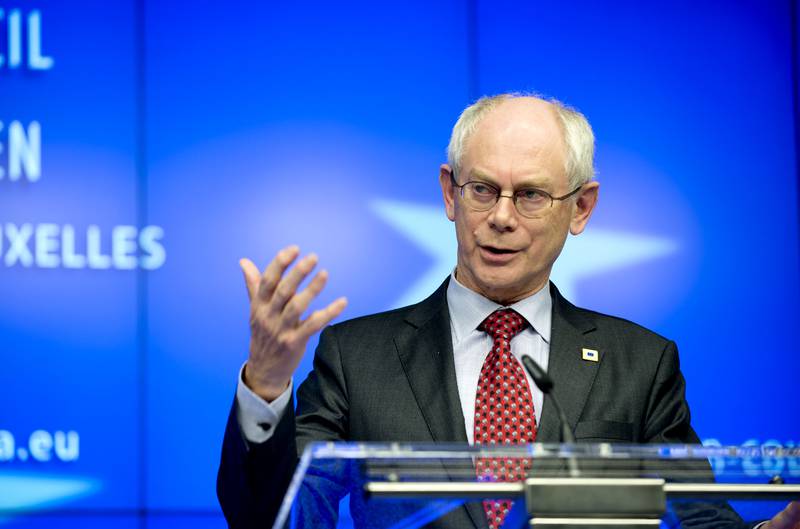 The eurozone crisis erupted in the beginning of 2009 when it slightly started to become clear that in its foundation were instable architecture, various standards, political and financial cultures. When one after another governments started to default, while there was hysteria on the international markets, the EU was resolving the problem piecemeal. The reform of the economic governance began with small steps until in June 2012 a unanimity was achieved that without a banking union the problem could not be resolved. And although the ambition back then was great, with the time it faded away. Today, two of the banking union's pillars are ready after really tough negotiations and at the price of a compromise with the European legislation. Because of the limits set when the EU founding treaties were written, a substantial part of the banking union will be based on intergovernmental arrangements. The conversation about a further deepening of the integration in the direction of a political union has completely dropped out of the agenda.
The eurozone crisis erupted in the beginning of 2009 when it slightly started to become clear that in its foundation were instable architecture, various standards, political and financial cultures. When one after another governments started to default, while there was hysteria on the international markets, the EU was resolving the problem piecemeal. The reform of the economic governance began with small steps until in June 2012 a unanimity was achieved that without a banking union the problem could not be resolved. And although the ambition back then was great, with the time it faded away. Today, two of the banking union's pillars are ready after really tough negotiations and at the price of a compromise with the European legislation. Because of the limits set when the EU founding treaties were written, a substantial part of the banking union will be based on intergovernmental arrangements. The conversation about a further deepening of the integration in the direction of a political union has completely dropped out of the agenda.
Taking the crisis under control took five years and is far from over. The cost is huge and is not measured in money only - the highest unemployment rates since World War II with young people having the largest share, mountains of debt, frustrated voters, growing support for populist and even xenophobic parties. The recent romantics for the European project has completely evaporated and euro-scepticism filled the vacancy. The benefits of the EU is more and more often questioned. A major topic of the debates on European level is more or less Europe with a distinct predominance of the latter.
The situation on the EU energy market is very similar, but if judging from the reaction of the member states we will have to await a severe energy crisis before starting to build a genuine energy union for which calls Polish Prime Minister Donald Tusk, already supported by Lithuania. If measures were not undertaken immediately, by 2035 the EU would be 80% dependent on imports for its oil and gas. Some countries are more dependent than others, but the big picture is not at all optimistic. It was outlined last year when the EU leaders gathered together for a special EU summit in May to discuss their energy and tax policy in the context of the weak economic growth perspectives. Then the European Commission revealed huge country-to-country divergences of the prices of energy resources. The presentation clearly showed that Bulgaria and the Baltic states consume the most expensive natural gas which, on top of it, comes mainly from Russia. And if the Baltic states are the only ones in the EU whose economy is rapidly growing, the Bulgarian economy is drifting downstream and the country continues to be the po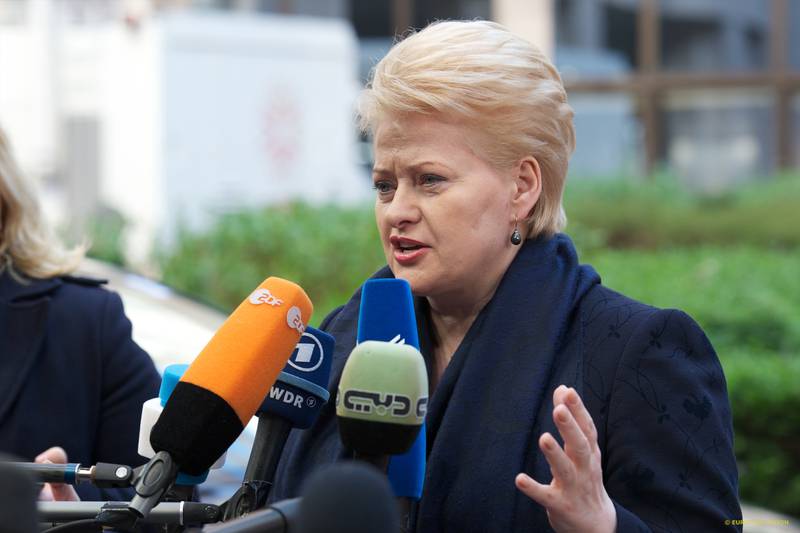 orest of all the 28 member states.
orest of all the 28 member states.
Something like a union but not exactly
In the area of energy, the EU has worked with the same dynamics and scope as with the construction of the Economic and Monetary Union - a long-term and not quite grandiose vision. By 2014, the energy market was to become common in the EU, and by 2015 no country should be left energy isolated from the rest. The only big step was made with the adoption of the Third Energy Package the purpose of which is to prevent monopolisation of energy by a single supplier, especially a difficult one as Russia. During the first EU summit dedicated on the energy on February 4th, 2011, Russia was viewed as a partner in spite of the gas crisis from 2009. "Work should be taken forward as early as possible to develop a reliable, transparent and rules-based partnership with Russia in areas of common interest in the field of energy and as part of the negotiations on the post-Partnership and Cooperation Agreement", the leaders wrote down in the conclusions from their summit then.
Not only Russia was viewed as a strategic partner, but the energy issue was viewed in the context of price competitiveness. But now, the situation is different. The Ukrainian crisis has clearly shown what a risk for energy (and therefore economic) security poses the existence of an instable and unpredictable partner. Fear is already tangible, but another thing is as tangible too. Throughout the years when the EU was setting all those long-term deadlines to pool energy sovereignty, Russia slowly but steadily has been advancing in European territory with binding long-term contracts concluded with pro-Russian governments. Although the member states committed at their summit in 2011 to share their energy plans, this did not radically change the situation. Work on the South Stream pipeline is ongoing, although this is a project that does not have the European Commission's support and is on the verge of legality in terms of the Third Energy Project, but the contracts are signed and the first sods are turned.
The third energy package is a thorn in Russia's eyes ever since it entered into force and was always on top of the agenda of the EU-Russia summit which, at this stage, are frozen. In January, the government of Victor Orban, who aroused concerns in the EU two years ago of a return of authoritarianism, signed a contract with Russia for the construction of additional reactors in the Paks nuclear power plant which currently secures 40% of the country's electric energy consumption in Hungary. The price tag of the project is huge - 10-12 billion euros which, of course, Russia has used its traditional tactics to secure by offering a loan. All this against the background of Hungary's public debt of around 80% of the gross domestic product. The same tactics Russia has offered for the construction of a second nuclear power plant in Bulgaria - Belene - which for now is frozen after the referendum on the issue last year. Nevertheless, the pro-Russian government in Sofia is trying to find a way to secure a lucrative project for Russia with a loan.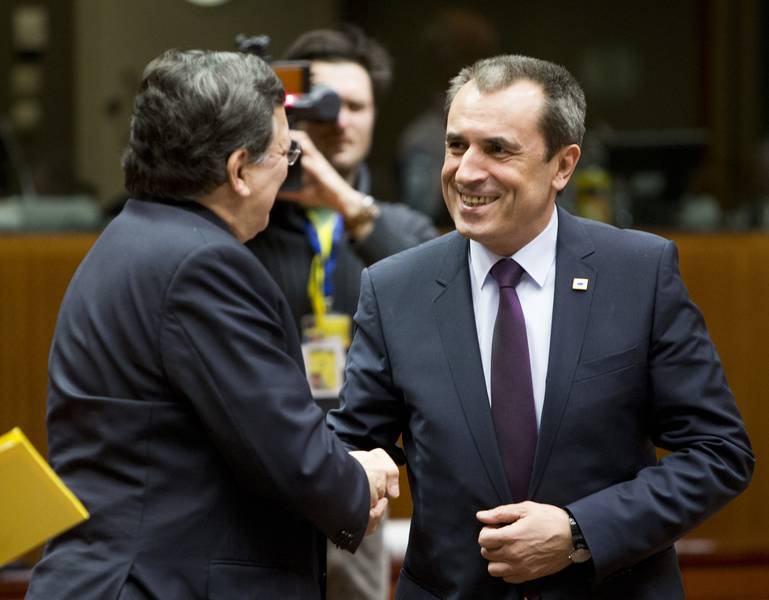
Lithuania is planning the construction of a new nuclear power plant together with the other two Baltic states and Poland with the aim to reduce their energy dependence on Russia, but Moscow is trying to prevent it by planning to build a nuclear power plant in its exclave Kaliningrad. The fact that Russia already owns a huge part of the energy infrastructure in two of the EU candidate countries that are negotiating for EU membership should also not be ignored - Serbia and Montenegro. The examples of the energy geopolitical war Russia has been leading silently while the member states were closing their eyes are many. Years ago the Russian ambassador to NATO said that Bulgaria was Russia's Trojan horse in the EU, but today it can be said that the Trojan horses are many. Let's not ignore Cyprus, too, and the excellent energy relations between Berlin and Moscow.
"Europe is stepping up a gear to reduce energy dependency, especially with Russia", said Herman Van Rompuy, the European Council chief, after the end of the spring EU summit on March 21. The second day of the summit was dedicated mainly on the Union's energy security. More than ever, among the member states there is unanimity that it is high time the European energy market to become really common and the efforts to unite seem to be much more than it has ever been thought of. But isn't it too late?
It is obvious that in order to ensure the security of its economy by securing energy independence and security of supplies, the EU should apply the experience it has gained with the euro area crisis and should start thinking with a larger scale. If it is to go for an energy union what kind of a union should it be, when should it be built, how much will it cost, where will the money come from, do the current founding treaties allow such a thing? So far, there is no ambition for such a discussion. Instead, the EU is working again piecemeal. By June, the Commission should draw up a plan for the construction of interconnectors that have to be completed by 2030. Besides, an in-depth study should be made of EU's energy dependence together with a plan to reduce it. The US can also help, but President Barack Obama was more than clear in Brussels recently when he said that the US took some really difficult decisions. It is time Europe to take them too. There is hardly any doubt that he meant shale gas.
The Union will fight its energy dependency by increasing transparency which will be a huge challenge, especially in relation to Russia. The formulation in the March 20-21 European Council conclusions is not very encouraging. It is said that a priority for the member states is "effective and consistent implementation of the Third Energy Package by all players in the European energy market", but it is not clear what will happen if there was no such implementation. Such is the case with Bulgaria where on April 4th the parliament adopted at first reading amendments to the energy legislation aimed entirely at South Stream. The amendments call a part of the pipeline an interconnector thus circumventing the Third Energy Package. Herman Van Rompuy explained after the summit that the EU should work much more as a team when negotiating on energy contracts. More information has to be shared, more transparency needs to be ensured for the conditions in contracts with the aim to increase the EU's negotiating leverage with an unpredictable state as Russia.
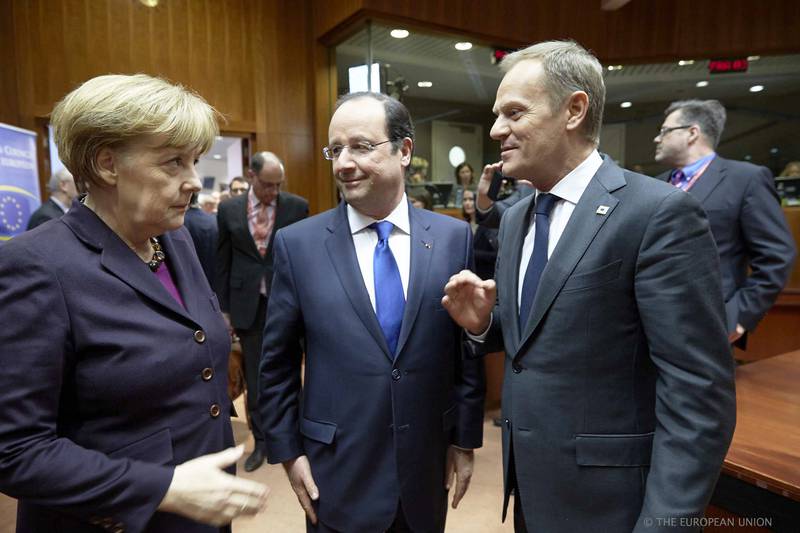 All these are steps in the right direction, but, again, they are small and without scale. An energy union is not what the European leaders had in mind when they used the phrase, said Herman Van Rompuy responding to a Reuters question, provoked by associations precisely with the banking union. The phrase is very ambitious and aims to rather send a political message than to be actually built, added the European president. Should there really occur an energy crisis to move toward a genuine energy union that can be much more than a common market, is the question the member states need to answer soon. Because if there is an energy crisis, it will be of a scale against the backdrop of which the euro area crisis, with the gigantic unemployment that followed and the austerity policies, will seem like a minor problem.
All these are steps in the right direction, but, again, they are small and without scale. An energy union is not what the European leaders had in mind when they used the phrase, said Herman Van Rompuy responding to a Reuters question, provoked by associations precisely with the banking union. The phrase is very ambitious and aims to rather send a political message than to be actually built, added the European president. Should there really occur an energy crisis to move toward a genuine energy union that can be much more than a common market, is the question the member states need to answer soon. Because if there is an energy crisis, it will be of a scale against the backdrop of which the euro area crisis, with the gigantic unemployment that followed and the austerity policies, will seem like a minor problem.
Such an energy crisis will endanger the very existence of the EU as a community and common market. That is why, the talk about EU's energy security is imperative. It should take place in June when the Commission will present its study on the Union's energy dependency and its ideas to reduce it. Discussing the way forward should be led through the prism of the future relations with Russia. An important aspect of this topic should be what to do with the Trojan horses. May be, the only benefit from the deterioration of relations with Russia is that it happened precisely when the talk about a reform of the EU has started to gain speed. May be, it is worth considering energy relations in the context of deciding on opening the EU treaties for reform.
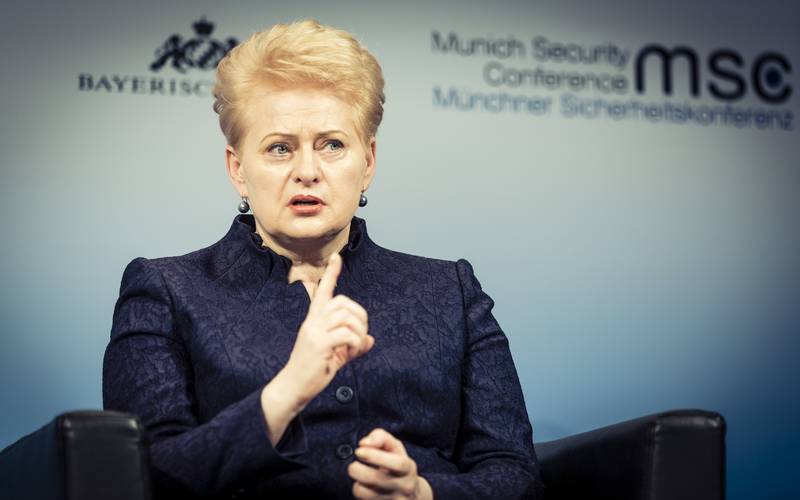 Dalia Grybauskaite | © MSC/Koerner
Dalia Grybauskaite | © MSC/Koerner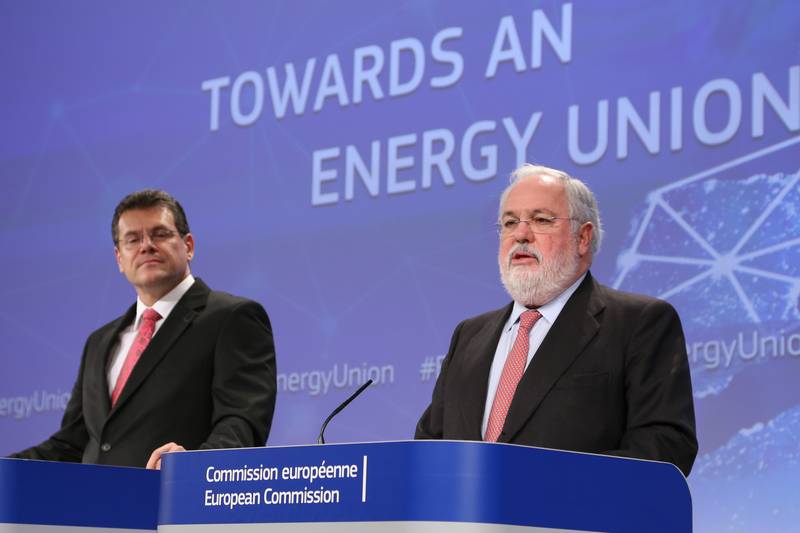 Maros Sefcovic, Miguel Arias Canete | © European Commission
Maros Sefcovic, Miguel Arias Canete | © European Commission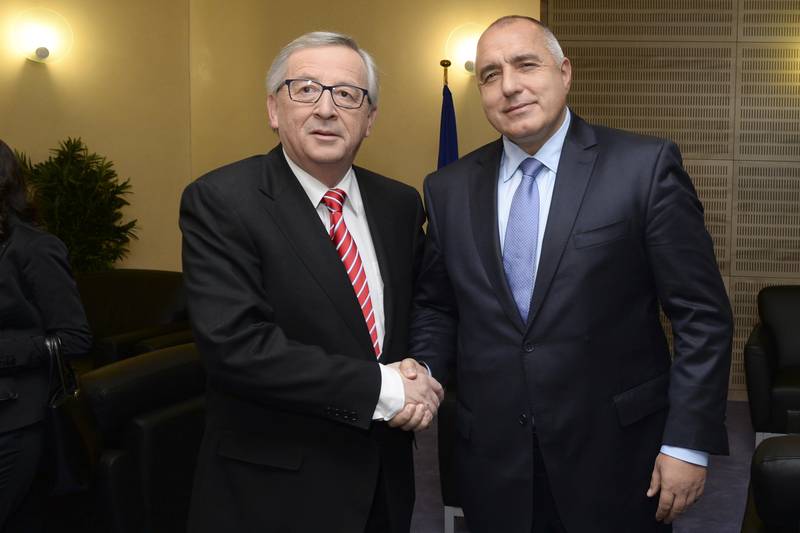 Jean-Claude Juncker, Boyko Borissov | © European Commission
Jean-Claude Juncker, Boyko Borissov | © European Commission